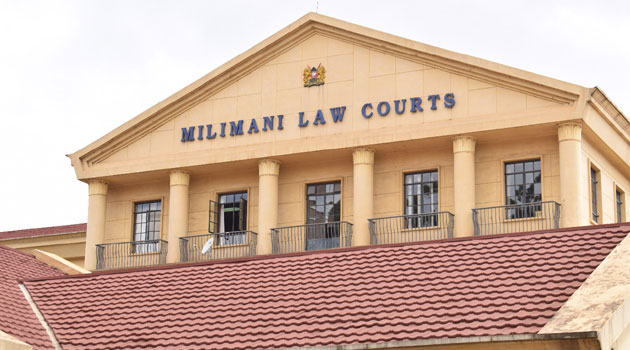
High Court Nullifies Ruto’s IEBC Appointments But Allows Regularisation » Capital News
NAIROBI, Kenya – July 10, 2025 – A three-judge bench of the High Court in Nairobi has quashed the appointments of the Chairperson and Commissioners of the Independent Electoral and Boundaries Commission (IEBC), ruling that the process violated an existing court order.
In a judgment delivered Thursday, Justices Roselyne Aburili, John Chigiti, and Bahati Mwamuye declared that Gazette Notices No. 7724 and 7725—issued on June 10, 2025, and which formalised the appointments—were in breach of interim conservatory orders issued on May 29. The court had earlier barred the government from gazetting the appointments pending the hearing and determination of a constitutional petition challenging the recruitment process.
However, the court dismissed the substantive petition filed by activists Kelvin Roy Omondi and Boniface Mwangi, ruling that the claims lacked merit and did not meet the threshold required to nullify the selection, nomination, and vetting of the seven appointees.
“The Petition dated 13th May 2025 is hereby found to be without merit and is dismissed,” the judges ruled.
“Gazette Notice No. 7724 appointing the 1st Interested Party as IEBC Chairperson and Gazette Notice No. 7725 appointing the 2nd to 7th Interested Parties as Commissioners are hereby quashed for having been published in contravention of the Court’s interim conservatory orders.”
The court clarified that its decision affects only the timing and manner in which the appointments were formalised—not the legality or suitability of the individuals selected. The judges noted that the appointing authorities are at liberty to take “appropriate constitutional steps” to regularise the appointments now that the conservatory orders have been lifted.
This ruling provides a legal pathway for President William Ruto to reissue the appointments in compliance with the law.
The court also directed that each party bear its own legal costs, citing the matter as one of public interest.
The petitioners had challenged the process on several grounds, including claims of favoritism, lack of diversity, and the failure to appoint a person with a disability. The court dismissed all allegations as unsubstantiated. It further ruled that the recommendations of the National Dialogue Committee (NADCO) were not legally binding in the appointments process.